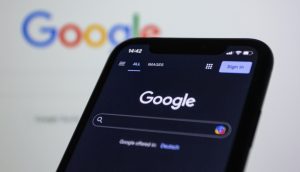This morning’s FFWD Industry Breakfast at ICA’s FFWD Advertising and Marketing Week, sponsored by Microsoft Advertising, featured Rick Chavez, general manager, marketing solutions, Microsoft.
MiC caught up with Chavez to get a sneak peek of his talk, and his thoughts on how the digital space has changed the consumer-marketer relationship.
What will your talk focus on?
Chavez: A lot of what I’ll speak about will really be coming out of our strategic positioning and some work and research we’ve been doing. There’s a new wave of digital that’s all around us, where digital technologies are much more natural and human. In a world of proliferating devices and all kinds of media and content it would appear that the world has in fact gotten tremendously complex for the marketer. As opposed to organizing around the marketing funnel, which has been a logical framework and approach for marketers for decades, we are in the consumers’ funnel.
How has the digital space changed the consumer-marketer relationship?
Chavez: Ten or 15 years ago when you were going to buy a car the power in that process was not with consumers, but with the dealer. With digital, you as the consumer have much more control, and if you don’t, you want it, because the social world, Facebook and all the access to different information, buying experiences or industries has taught you you’re pretty powerful. You can get the data you need to make the decisions you want to make.
What challenges does this pose for marketers?
Chavez: We’re flying blind. We’re serving up ads with a fair amount of guess work. What this shift [in the consumer-marketer relationship] means for marketers and others in the digital ecosystem is we’ve got to do a much better job of understanding what consumers are trying to do.
Getting proactive, not reactive with data is another big challenge. How do you take all these signals coming in from different places and not just assess what they meant retroactively, but to shape the future proactively?
How can marketers overcome these challenges?
Chavez: If marketers are helping consumers achieve the tasks and goals they have, consumers will give them more data and help make the experience better. It requires that marketers use the data intelligently to deliver richer experiences. If consumers do give marketers more data about their interests, needs and intents then it’s our obligation to used that data wisely, use it safely, and enrich the experience and make it much more relevant.
What opportunities are emerging for marketers?
Chavez: Marketers have an ability to engage much more richly and much more deeply with consumers in the ways consumers want to be met, and at the times and places and contexts that consumers want to be served. There are lots of choices for the marketer and that makes it tough. The flipside of that is there’s enormous opportunity for marketers to connect with consumers in the ways they truly want and find helpful, not disruptive.
We often have done not so great a job of bringing digital and physical together. We’ve taught people they’re separate. Making the digital wrap around the physical so that it’s all about people doing things that are natural in the way they live their lives, that’s also a big area of opportunity and challenge for marketers.
How will the digital ad market change over the next six months/year?
Chavez: The internet technology ecosystem is very fragmented, and I think will be consolidated. You’ll see companies buying other companies and rolling themselves up into bigger entities. On the ad serving and ad infrastructure side of things you’ll see a fair amount of that.



















